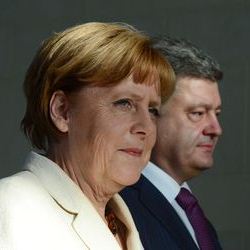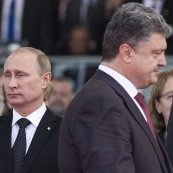(The Moscow Times) The recent flurry of European diplomatic activity on the crisis in Ukraine suggests that a trilateral compromise between the EU, Russia and Ukraine may be in the making. Or, at least, this would be the EU's preferred choice.
First, there are strong doubts whether Ukraine will be able to successfully transform, to separate business and politics, to become a functioning economy and liberal democracy.
Continuing conflicts between oligarchs, the uncertainty surrounding constitutional reform, and poor cooperation between the various branches of government frustrate Ukraine's allies and give arguments to the skeptics. The question inevitably arises whether Europe's commitment would be justified.
Second, there seems to be an assumption that Russia will not allow Kiev a military victory in eastern Ukraine, whatever the costs. If so, the lack of a deal would only lead to further escalation and loss of human lives, which is not acceptable.
Third, Russia's demands do not look excessive or exorbitant from the point of view of realpolitik: the recognition of Crimea's annexation and keeping Ukraine outside the EU and NATO. The former has already happened de facto.
As for the latter, even before the crisis, the idea of granting Ukraine EU membership did not have too many supporters in Europe. On the contrary, the recommendation that Ukraine seek the status of Cold War-era Austria or Finland — despite failing to state clearly who will guarantee the country's neutrality —was and still is being made rather often.
Last but not least, Europe does not feel comfortable about conflict with Russia. The main issue is not money. After all, the whole value of banned EU food exports to Russia is more than two times smaller than the international rescue credit package provided to Cyprus in spring 2013.
The issue is that the basic philosophy of post-modern Europe, according to which a bad compromise is always better than a conflict, and peace under any circumstances is better than war, even trade war. In addition, confrontation with Russia further corrodes EU solidarity and cohesion. […]











